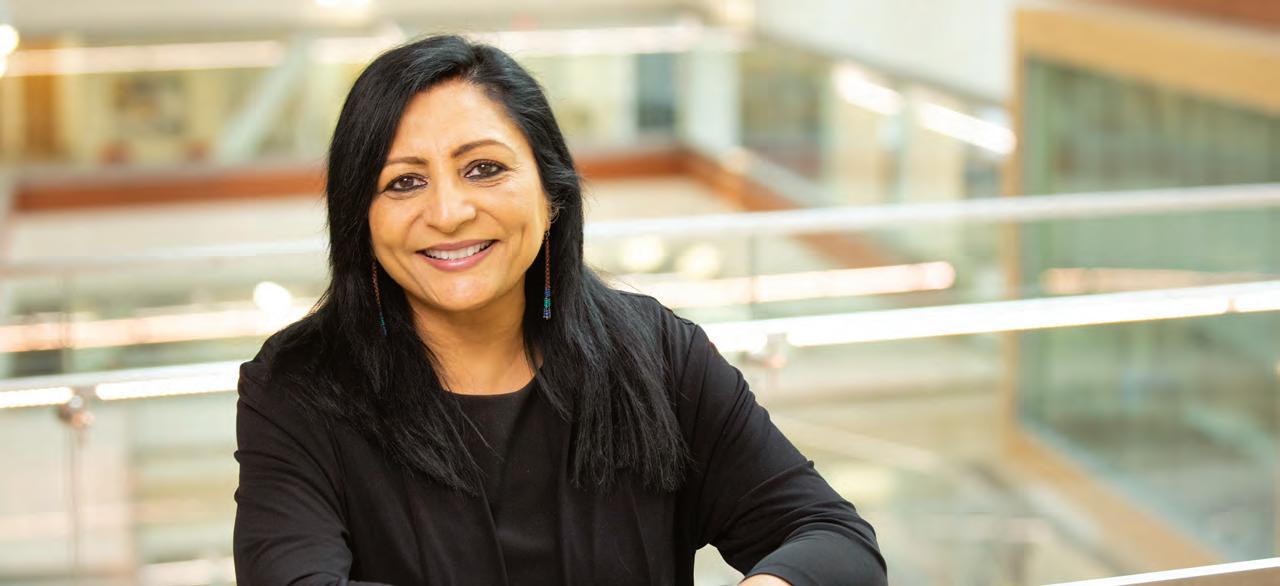Jennifer Meka, PhD, director of the Medical Education and Educational Research Institute and assistant dean for medical education, center, with students.
CHANGING THE WAY Medicine IS TAUGHT
STORY BY GROVE POTTER PHOTOS BY DOUGLAS LEVERE
TODAY’S STUDENTS LEARN DIFFERENTLY, AND THERE IS MORE TO KNOW
A
walk through the new Jacobs School of Medicine and Biomedical Sciences’ building makes it clear that the teaching of medicine has changed. Large lecture rooms are scarce. Now you’re more likely to find rooms where small groups of people work closely together.
That design is one signal that the days of lecture-learning are fading fast. Team-based and case-based interactive learning have been shown to create the kind of learning that leads to better, more durable retention of material and to improve problem-solving skills. But how does one learn to teach that way?
New medical education institute Enter Jennifer Meka, PhD, director of the Jacob School’s newly established Medical Education and Educational Research Institute (MEERI) and assistant dean for medical education. Working in concert with faculty, she is helping to transform the way medicine is taught at the school, aligning it with how students today learn and with best practices as defined by educational research. Her mission is to teach the teachers how to utilize evidence-based approaches to making learning more interactive, deep and durable, to promote the success of future physicians.
6
WINTER 2020
UB MEDICINE
“The goal for MEERI is to equip our faculty with the tools they need to train students as critical thinkers, able to clinically reason, while utilizing the ever-expanding volume of medical information they will need as future physicians,” says Meka, who holds a doctorate in education. “To do this, faculty need to understand how people learn and approaches to integrating this in their teaching methods. Layering the content with teaching students how to learn effectively prepares them for future learning.” Changing long-held teaching practices can be daunting, but Meka says she has been warmly welcomed and many teachers are eager to learn. “It’s an amazing place to be because everyone has their own area of expertise, but they all are open and willing to learn how they can be better teachers.” But the change is not easy. “It’s difficult to adapt to new ways of teaching for two reasons,” says Meka, who started at the medical school last March after serving







